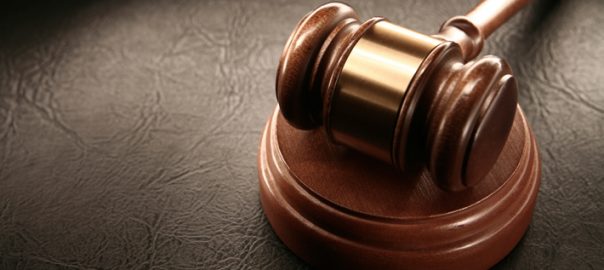In recent years, the English courts have seen a number of claims by sovereign states against former public figures alleging bribery, corruption and other crimes. Although the facts of these disputes usually have little to do with England or English law, proceedings in England are popular both to take advantage of our respected legal system and available remedies to recover assets here.
The defendant often claims to be innocent and a victim of state persecution. However, it takes time and money to prove this. In the meantime, he can be put under huge pressure with an English worldwide freezing order. He has to disclose information about his assets or be sanctioned. It enables the state claimant to “police” his spending.
Under this pressure, the defendant sometimes buckles – even if there is merit in his defences. He capitulates or runs away so his case never gets to trial. Either way, he loses.
The Boreh case is a striking example of what a state can do when it wants to “get” somebody, the role political motivation plays in cases of this nature and the perils of lawyers furthering an improper agenda. For genuine victims of state vendettas, it highlights the importance of staying the course and good preparation.
The Boreh proceedings
Djibouti sued Mr Boreh in England in 2012 for bribery, corruption and abuse of public office seeking damages in excess of US$125m. A wealthy businessman by background, Mr Boreh was appointed Chairman of the Djibouti Ports and Free Zones Authority in 2003. Djibouti argued that although unpaid, Djibouti law required Mr Boreh to give up his business interests and devote himself exclusively to state affairs. Instead, it alleged, he continued his business activities and obtained vast sums through bribery and corruption involving Dubai state-owned companies which managed and developed Djibouti’s port facilities.
This was one of several actions taken by Djibouti against Mr Boreh after he fell out with the President in late 2008 and went into exile. Mr Boreh’s assets in Djibouti were seized. He was convicted in absentia for fraud, embezzlement, tax evasion and, most seriously, terrorism.
Djibouti used its position as a sovereign state to seek assistance from international governmental agencies to obtain information as to Mr Boreh’s assets, block his use of them and try to extradite him to Djibouti. This included the Swiss and UAE authorities, the French courts, Interpol, the US Department of Justice, Homeland Security and the FBI.
Djibouti retained a large legal team led by Gibson Dunn partner Peter Gray and Khawar Qureshi QC. Kroll investigators were also retained as was Al-Tamimi law firm of Dubai. A media campaign was mounted to publicise Mr Boreh’s alleged misdeeds.
Unsurprisingly, these initiatives had a massive effect on public and initial judicial perception of Mr Boreh. As Dominic Kendrick QC (for Mr Boreh) later told the Court:
“Before this case, I had never challenged the proposition which you often hear – that fraud is the most serious charge you can lay against a commercial man. Well, it’s not, I now learn. Terrorism is. It makes it impossible for that person to do business”.
In mid-2013, Djibouti’s team stepped up their campaign with coordinated attacks in Dubai and England. In Dubai, they applied to extradite Mr Boreh so he was detained there. In England, they applied for a worldwide freezing order, serving over 2,000 pages of documents a few days before the hearing. Detention in Dubai meant that Mr Boreh was handicapped in instructing his lawyers.
Flaux J granted the freezing order based on affidavits sworn by Mr Gray. The evidence produced by Mr Gray included a transcript of “tapped” telephone calls between Mr Boreh and two brothers in Djibouti which, it was claimed, related to a grenade attack on a Djibouti supermarket. Mr Gray also exhibited an alleged confession from one of the men.
Based on this evidence, Flaux J concluded that although he was not judging the case on its merits, Mr Boreh was “arguably engaged in terrorism”. This supported granting the freezing order.
The pressure mounts
Mr Boreh’s future looked bleak. Djibouti publicised Flaux J’s judgment internationally to advance its anti-Boreh agenda. Furthermore, Mr Boreh was detained in Dubai facing extradition and imprisonment in Djibouti – or worse.
At this juncture, a senior Kroll investigator met with Mr Boreh, warning that he had a small window of time to “settle”. He pointed out that Mr Boreh faced extradition and imprisonment in Djibouti; that steps had been taken to shut him out of international financial networks so he could not carry on any business. Kroll said they could make the terrorism conviction go away; that Mr Boreh could stop looking over his shoulder and give his children a fair chance in life – but only if he agreed to pay more than the sums claimed in the English proceedings.
The tide turns
In the meantime, Mr Boreh’s team obtained evidence that the transcript was misdated and the telephone calls could not have been about the grenade attack. The “confession” and terrorism conviction were unsafe.
Mr Boreh’s lawyers repeatedly questioned Gibson Dunn as to how the misdating arose and who knew when they applied for the freezing order. In the face of evasive replies, Mr Boreh’s lawyers applied for affidavit evidence as to whether (and who within) the Djibouti/Gibson Dunn team knew about the misdating. This was granted despite strenuous resistance by Mr Qureshi.
Eventually, Gibson Dunn produced affidavits from Mr Gray and senior Djibouti officials admitting that they had known of the misdating at the relevant time. Mr Gray sought to exculpate himself by saying that he had shared this information with, amongst others, Mr Qureshi and there had been no intention to mislead.
Mr Boreh’s lawyers applied to set aside the freezing order and Mr Gray was cross-examined for three days at a hearing lasting two weeks in which every party including Mr Gray had a separatelarge legal team. Flaux J held that Mr Gray had “deliberately misled the court” – conduct in which Djibouti was complicit.[1] The Judge set aside the freezing order and described Djibouti’s conduct as “reprehensible” and falling “a long way short of the standards of behaviour which the court is entitled to expect of a sovereign state”. The Judge also concluded that there was “unambiguous impropriety” in the nature of the threats made by Kroll.
The fallout
This was a watershed in the case. Mr Gray was dismissed from Gibson Dunn. Mr Qureshi resigned from the case. Lord Falconer QC and Philip Rocher led the Gibson Dunn team for the trial which took place over ten weeks in late 2015. Shortly before, and during the trial, Djibouti abandoned most of its claims against Mr Boreh.
As the President was a key witness for Djibouti, Flaux J emphasised the importance of him attending trial to give evidence. The President declined, but the judge heard from several senior Djibouti officials, as well as Mr Boreh. In March 2016, he delivered a scathing judgment[2] dismissing what remained of Djibouti’s claims, noting:
“Like counsel, I cannot recollect a case in which so many claims (let alone ones involving allegations of dishonesty) have been pursued with such vigour and then abandoned at trial. No proper explanation has been advanced as to why they were pursued and then abandoned. I am left with the distinct impression that the Republic was intent on pursuing a scattergun approach against Mr Boreh of throwing as much mud as it could in the hope that something would stick, even though many of the matters were not ones in respect of which the Republic could have had a legitimate or sustainable claim”.
He rejected much of Djibouti’s witness evidence, noting their “marked reluctance to say anything…which might contradict…the President’s stance”. He accepted Mr Boreh’s evidence, saying: “he was an essentially honest witness who was telling the truth about the issues which really mattered…. The picture which Lord Falconer sought to paint of a thoroughly corrupt businessman simply did not correspond with my assessment of Mr Boreh.”
Djibouti’s application for permission to appeal was refused by the Court of Appeal in June 2016.
A few of the lessons learned
Impact of political motivation
Judges have tended to treat claims of political motivation as irrelevant to the merits. Such was the reaction to Mr Boreh’s plea of political motivation before Field J who described it as “background music”. A claim is to be judged on its merits according to the law.
However, the Boreh case demonstrates that the issue of political motivation is not irrelevant. Mr Justice Flaux examined Djibouti’s conduct and concluded that political motivation was relevant in that it “cast doubt upon the bona fides of the claims…and the conduct of the litigation [and] provides confirmation of the capricious nature of the regime in Djibouti”.
Thus, although the merits of Djibouti’s claims were closely scrutinised by the Judge, the motivation behind them was relevant. Importantly, it also affected a number of consequential matters.
Indemnity costs
Flaux J held that if a claim is motivated by malice, it will be relevant to whether the claimant will be liable to the defendant on the indemnity basis as opposed to the standard basis. Djibouti accepted that Mr Boreh was entitled to his costs on the higher indemnity basis.
Security for costs
An important consideration for any defendant is to get security for his costs so he is not out of pocket if he wins. This is especially so where the claimant is a sovereign state because state immunity issues can prevent enforcement of any costs award.
Initial security for Mr Boreh’s costs was granted on the usual assumption that any award would be made on the standard basis. However, the indemnity costs award meant that Mr Boreh would be left with a significant shortfall if he could not recover the difference from Djibouti. Mr Boreh’s lawyers therefore sought ‘top up’ security for his pre-judgment costs.
There has been controversy about whether the Court has jurisdiction to grant post-judgment security as the judgment normally signals the end of the case. In a consequential hearing, Flaux J held the court did have jurisdiction where there was a relevant change of circumstance. Mr Boreh was able to show this change partly due to the award of indemnity costs which was in turn based on the “reprehensible” conduct of Djibouti and its baseless claims driven by political motivation. Flaux J accepted the submission of Richard Waller QC (for Mr Boreh) that unless the security was topped up, Djibouti was “likely to exploit the practical impossibility of enforcing judgment in Djibouti to avoid paying any further costs.”
Djibouti had no choice but to top up the security as it was seeking permission to appeal.
The lawyers’ role
In the Boreh case, the Court clearly considered that Mr Gray had crossed the line in terms of conduct. Clients want their lawyers to fight their corner hard but what happened in this case is a salutary reminder of certain fundamentals. Mr Gray’s appeal against the finding of dishonesty remains extant and he is now in litigation with his former employers.
For lawyers advising a genuine victim of political persecution, it is can be challenging to maintain morale under the weight of freezing orders, negative publicity and a state with all the resources available to it. However, it pays to remember that a lot can change in the course of a case, especially at the end when the judge scrutinises the witnesses and the evidence much more closely.
[1] Abdourahman Mohamed Mahmoud Boreh v Republic of Djibouti, Autorite des Ports et des Zones Franches de Djibouti, Port Autonome International de Djibouti and Gibson, Dunn & Crutcher LLP (as an additional respondent) [2015] EWHC 769 (Comm)
[2] Republic of Djibouti, Authorite des Ports et des Zones Franches de Djibouti and Port de Djibouti S.A. v Mr Abdourahman Mohamed Mahmoud Boreh, Boreh International FZE, Essense Management Limited and Net Support Holdings Limited [2016] EWHC 405 (Comm).



